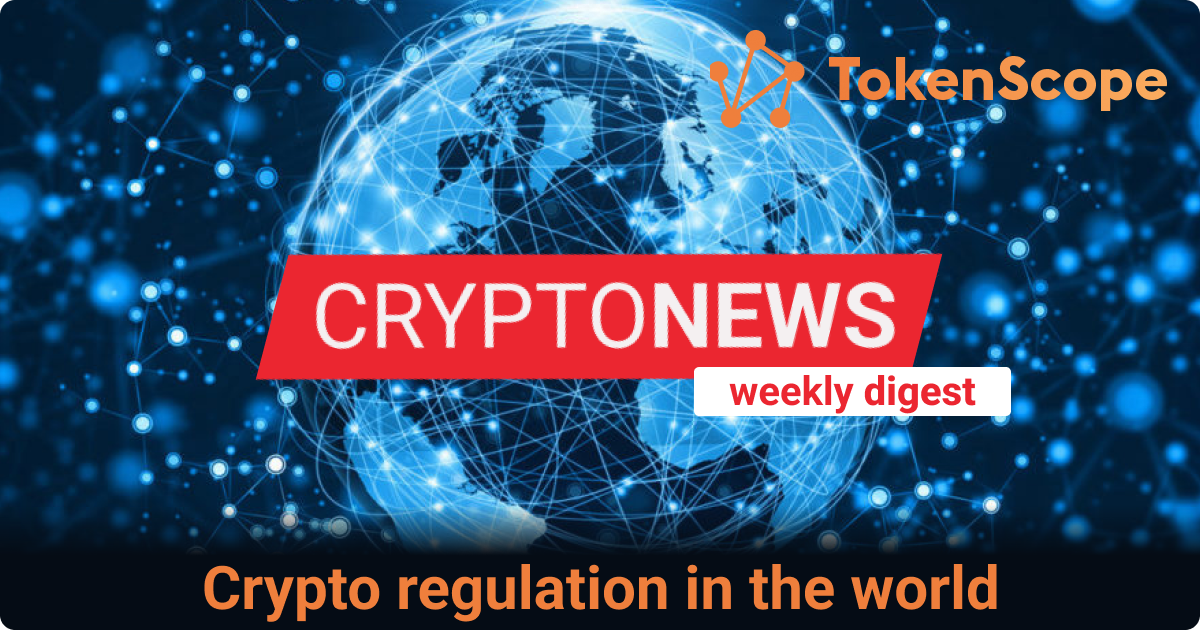Crypto regulation in the world: weekly digest #99

The UAE
The Central Bank of the United Arab Emirates (CBUAE) has approved a new system for overseeing and licensing stablecoins. The regulations clarify the issuance, licensing and supervision of dirham-backed payment tokens.
Key points of the new stablecoin licensing system:
-
Payment tokens, issued in the UAE, must be backed by UAE dirhams and cannot be linked to other currencies, digital assets or algorithms.
-
Merchants and service providers can only accept AED-backed tokens and no other virtual assets.
The system aims to enhance the UAE's digital economy and foster innovation. It is part of the CBUAE's Financial Infrastructure Transformation (FIT) program, which includes initiatives like issuing a central bank digital currency.
The CBUAE's move to regulate stablecoins provides clarity for the virtual assets industry and reaffirms the UAE's leadership in fintech. Earlier the CBUAE has issued a comprehensive guidance for virtual assets.
The EU
Binance plans to restrict the availability of «unauthorized» stablecoins in the European Union starting June 30, 2024, in compliance with the upcoming Markets in Crypto-Assets Regulation (MiCA). Under the MiCA, stablecoins that are not issued by Electronic Money Institutions (EMIs) or credit institutions are considered «unregulated». These stablecoins do not meet the regulatory requirements outlined in the Electronic Money Directive (EMD) and are therefore illegal in the European Economic Area (EEA) unless they obtain the necessary licenses and comply with the existing regulations.
Starting July 2024, stablecoin issuers must also meet additional requirements spelled out in MiCA. Only Electronic Money Institutions (EMIs) and credit institutions can legally issue fiat stablecoins in the European Economic Area.
Circle, the issuer of USDC, has applied for an e-money institution licence in France. Once approved, its stablecoin will be regulated in the EU. Tether has also expressed interest in EU regulation but has not yet secured a license. It has partnered with BDO Italia to ensure compliance. However, its future in the EU market remains uncertain. Some exchanges, like OKX, have already delisted Tether trading pairs in Europe due to impending regulations. Others, like Bitstamp, have plans to delist coins if issuers are not regulated by June 30.
MiCA will introduce stricter regulations for stablecoin issuers in the EU, leading to restrictions on unregulated stablecoins like Tether and Circle's compliance efforts to ensure regulatory approval.
Hong Kong
Several major cryptocurrency exchanges, including OKX, Gate.io, KuCoin, Binance, and HTX, have withdrawn their applications for a virtual asset trading platform (VATP) license in Hong Kong due to stringent regulatory requirements and an inability to serve mainland Chinese investors.
The Securities and Futures Commission (SFC) of Hong Kong has set exacting demands for license applicants, which has led to seven out of the original 24 applicants withdrawing their applications. The SFC requires VATPs to comply with all applicable laws and regulations, including preventing mainland Chinese residents from accessing any of their virtual asset-related service.
This restriction on serving mainland Chinese investors appears to be a major factor in the withdrawals, as Chinese crypto investors remain crucial for many exchanges that have moved offshore. The SFC may have also directly instructed some applicants to withdraw their applications, as businesses typically do not invest time and money into a licensing process only to withdraw unless it is clear they will not meet the approval bar.
As of the end of May, only HashKey Exchange and OSL have been approved to serve retail investors in Hong Kong, while 18 VATP applicants remain on the SFC's official list. The SFC has advised investors to check the official list of approved exchanges to minimize risks associated with trading cryptocurrencies.
Mainland China is a crucial market for many cryptocurrency exchanges. The inability to serve these investors means that these exchanges must find alternative markets to maintain their user base and revenue streams. This can be challenging, especially since many exchanges rely heavily on Chinese investors for their business.
News from other countries:
-
Worldcoin suspended operations in Spain due to regulatory concerns and privacy issues. The Spanish Agency for Data Protection (AEPD) ordered the suspension of Worldcoin's operations in the country, citing privacy concerns over the collection and processing of user data. Specifically, the agency raised concerns about the high risks to individuals' rights and freedoms posed by the processing of biometric data, particularly for minors. The company faces identic difficulties in several other countries of Europe, including Germany, France and the UK.
-
Russia is considering allowing cryptocurrencies for foreign trade. The governor of the Bank of Russia has stated that the institution is discussing the potential use of cryptocurrencies and central bank digital currencies (CBDCs) for cross-border payments. Although Russia opposes the use of cryptocurrencies for domestic transactions, it remains open to their use in foreign trade.
We continue to highlight the news of the world of crypto regulation worldwide. Please stay with us!




